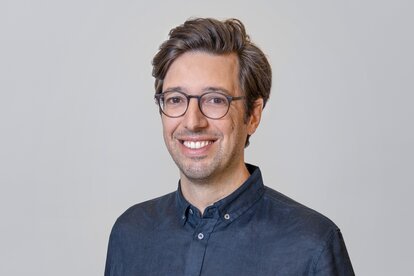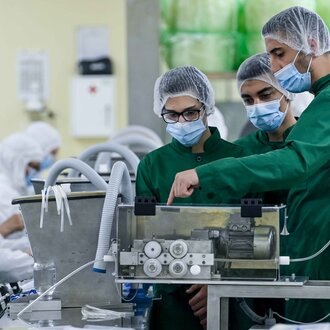Helvetas partnered with the Swedish International Development Cooperation Agency (Sida) to facilitate an inclusive and green economic development program in the Eastern Partnership and the Western Balkan regions. The name of the program, RECONOMY, stands for ‘starting afresh’, revitalizing the transitioning economies in the two regions.
-
Project NameRECONOMY
-
Project Phase2023 to 2026
-
FundingThis project is a mandate of the Swedish International Development Cooperation Agency (Sida)
-
Thematic focusEducation and Vocational Skills
Gender & Social Equity
Partnership & Capacity Development
Youth
The 11 countries in the Eastern Partnership region (Armenia, Azerbaijan, Georgia, Moldova, and Ukraine) and the Western Balkan region (Albania, Bosnia and Herzegovina, Kosovo, Montenegro, North Macedonia, and Serbia) share a joint legacy - history, governance, and economic development. A turbulent past in an ever-shifting international context and the aspiration to join the European Union (EU) has marked the patterns of economic performance and regional dynamics. Most countries of the regions are relatively small but experiencing high economic fragmentation.
Regional cooperation offered great potential in addressing shared challenges - ensuring political stability, security, and economic prosperity. Yet, this had come second in importance. It isn't an obvious choice but is a last-resort option if relations like trade with the EU wouldn't work. What is alarming is the lack of sufficient common economic and security direction.
The last two decades have demonstrated a general improvement in the macroeconomic performance of most of the countries in the regions. There has been an average growth and acceleration of Gross Domestic Products (GDP) across the regions, a fast rise in foreign trade, and substantial Foreign Direct Investment (FDI) inflows. The regions are in ‘fledgling governance transition’, or a process that can be described as a zone ‘in-between’ – in between democracy and authoritarianism, market and state-controlled economy, capitalist economic experiments and socialist legacy.
Some of the countries are making inroads to economic growth. This, however, isn’t translating into inclusive economic development for all, leaving a large chunk of the population under the poverty line. Groups such as women and the youth are disproportionately affected.
Watch: About RECONOMY
The core of RECONOMY is using current knowledge and practices and encouraging learning and sharing between countries. The program accomplishes this by involving a variety of stakeholders, including public institutions, nonprofits, academia, and businesses. While doing so, the program focuses on common issues that countries of both regions face as well as shared actors that may step up and support systemic improvements.
Since RECONOMY acknowledges that people live in countries, not regions, the program looks at local-regional processes and relationships. Without a place-sensitive frame of view, development efforts that ignore these facts frequently fall short.
RECONOMY places a high priority on the “triple dividend,” or the addition of Social, Economic, and Environmental values.
The main goal of RECONOMY is to enable women and youth, including the most disadvantaged and excluded, to benefit from economic opportunities by increasing their income and taking up decent and green jobs, inclusively and sustainably.
RECONOMY relies on implementing partnerships to bring about large-scale and sustainable change. Therefore, partnerships are important to our implementing model.







